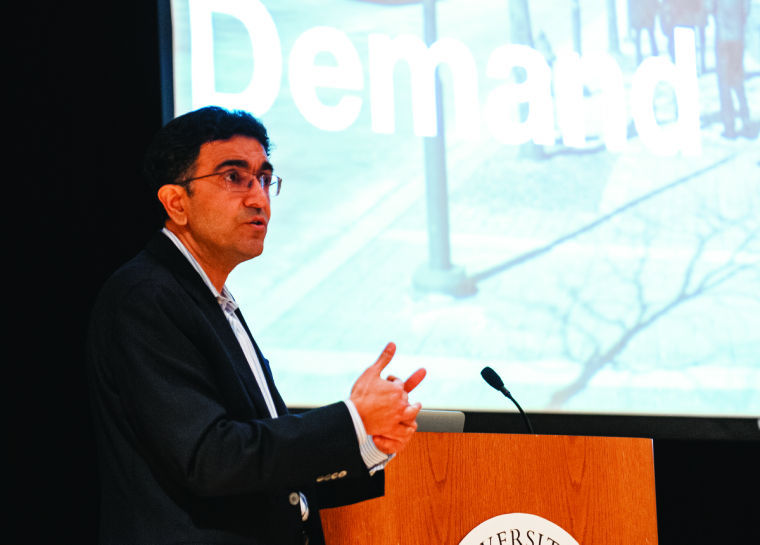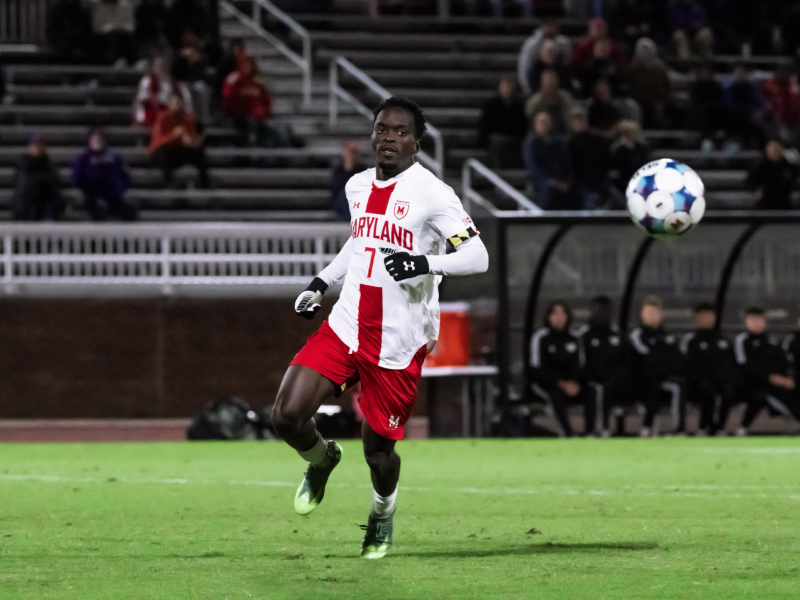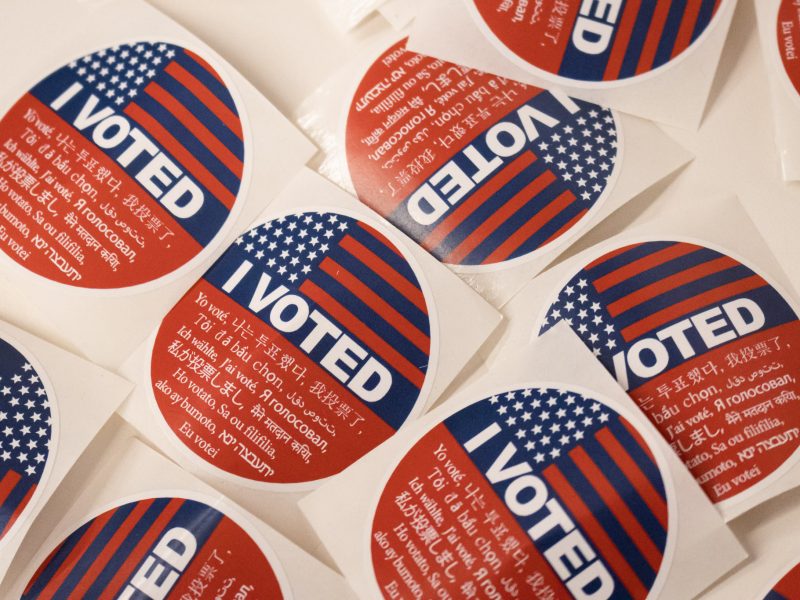
Omar Blaik, CEO of U3 Ventures.
It started with a new mantra: a university in the city, rather than a college in the park.
Now, less than a year after the announcement that university officials and a new developer would redirect East Campus — which has been in the works for more than a dozen years — a parcel-by-parcel plan to revitalize College Park is forging ahead.
U3 Ventures, the multidisciplinary firm with expertise in college town development now charged with overseeing the project, is in discussions with multiple landowners in the city, a signal that the latest version of the development project will involve various areas surrounding the campus.
Early this year, East Campus plans called for a 22-acre mixed-use development between Fraternity Row and Paint Branch Parkway. But Omar Blaik, founder and CEO of U3 Ventures, said that to truly transform College Park into a top-20 college town — a well-publicized goal of university President Wallace Loh’s — the entire city needs to be involved.
Rather than bringing retail, housing, upscale restaurants, a hotel and other amenities to a single plot of land, there will instead be development along Route 1 — and closer to the campus.
“A strong university can only be attained with a strong community
around it … a much more fruitful relationship between the university and city has to be furthered,” Blaik said. “We’ve been translating the vision into reality.”
Blaik could not specify which landowners were involved in discussions because agreements are not finalized, but he said there will be announcements about “several exciting projects” in the coming weeks and months.
As the university prepares to join the Big Ten in July, revitalizing the city will become increasingly important, Loh said. Thousands of fans from many of the Big Ten’s schools travel for football games and expect nice hotels, restaurants and retail to enjoy during their stay, he said.
“I wouldn’t be surprised if our stadium is packed — and packed with fans from the Big Ten,” said Loh, who previously served as provost at the University of Iowa, a Big Ten member. “The economic impact is enormous if they all stay in the community.”
Loh added that at Iowa, for every weekend traveling fans stayed for a football game, they pumped $18 million to $20 million into restaurants, bars, hotels, souvenir shops and other businesses.
Officials are also moving forward with plans to build a hotel and conference center near the campus and revamp housing options for both students and faculty members in the city.
One of the development project’s main goals is to encourage more faculty members to move to College Park. There will be additional faculty housing options — Domain at College Park, a luxury apartment complex, opened this summer — and this fall’s opening of the College Park Academy is aimed at providing a quality school for faculty members’ kids.
Additionally, Toll Brothers, a home-building company, is working with U3 Ventures to replace “derelict student housing” on Knox Road and better connect the southern edge of the campus and downtown College Park, Blaik said. The largely rundown houses on Knox Road will be replaced with more than 1,000 student housing units with a retail base. Toll Brothers will seek final approval from the College Park City Council in the coming weeks.
In past years, the university has encountered fierce opposition from city residents and the City Council when working on development projects. When a developer wanted to transform the Maryland Book Exchange into a mixed-use property, it took two years of heated debate and revised plans before council members approved the project.
This “university in the city” approach will be different, Blaik said, because the university and city are working together and the project aims to revitalize the entire city rather than a single plot of land. In past years, the university has not worked closely with the city, Blaik added.
College Park Mayor Andy Fellows said the city is “excited about the great opportunities” for development.
Rob Specter, former administration and finance vice president, was at the helm of city development, but he resigned in June. He is still helping with projects in the works, Loh said, noting that planning and progress have not slowed down because of Specter’s resignation.
“College Park will be a much more vibrant and much more normal college town that has adults and students mingling in a much more natural way than the current tensions,” Blaik said. “The university in the past looked at its interests in a narrow way and the city looked at its interests in a different way, and they never really communicated.”



